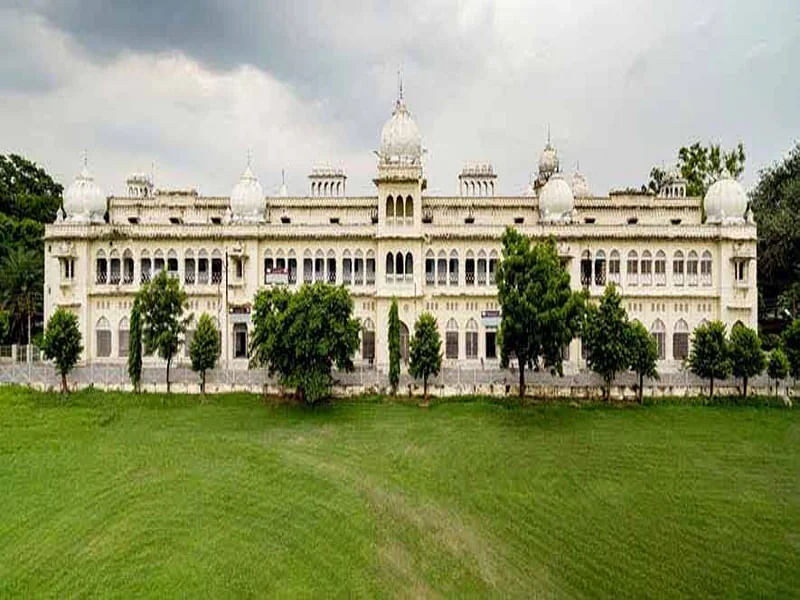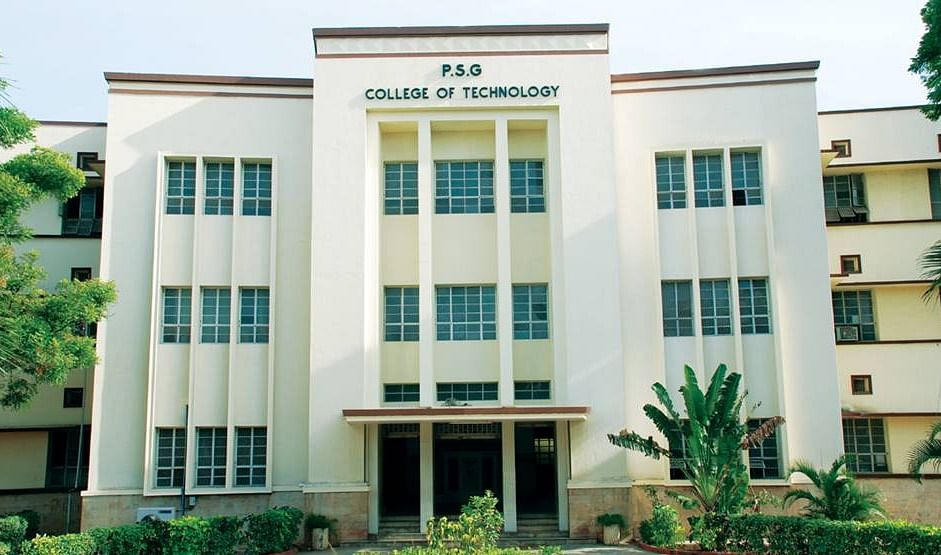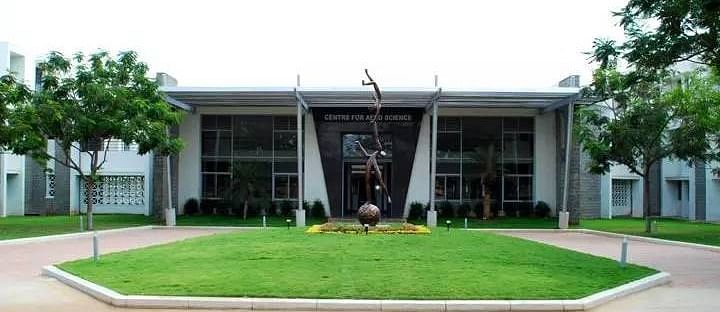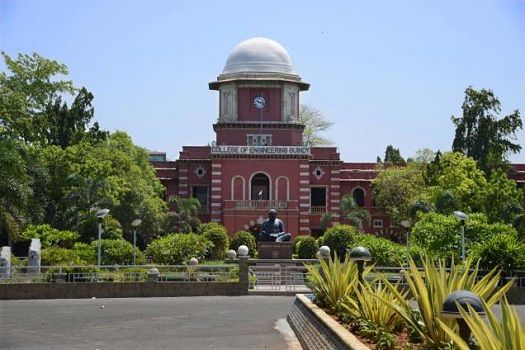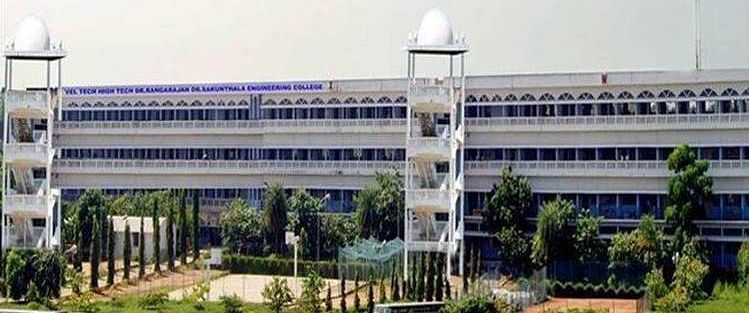BE Biomedical Engineering: Course Details, Eligibility, Fees, Admission

BE Biomedical Engineering is a four-year-long undergraduate program that deals with the application of engineering principles and problem-solving methodologies to biology and medicine. Biomedical Engineering aims to advance human health and healthcare at all levels. Bachelor of Engineering in Biomedical Engineering offers candidates to set up a career in various areas of Academic Institutions, Government Organizations, Medical Organizations, Pharmaceuticals, Clinics, Hospitals, Manufacturers, Diagnostic, Labs, Space, Installation Units, etc.
Table of Contents
- About BE Biomedical Engineering
- BE Biomedical Engineering Eligibility Criteria
- BE Biomedical Engineering Admission Process
- BE Biomedical Engineering Entrance Exams
- Top 10 BE Biomedical Engineering Colleges in India
- Fee Structure for BE Biomedical Engineering
- BE Biomedical Engineering Syllabus and Subjects
- Why Choose BE Biomedical Engineering?
- Scope For Higher Education
- Salary of a BE Biomedical Engineering Graduates
- Career Options After BE Biomedical Engineering
- Skills That Make students The Best BE Biomedical Engineering Graduates
BE Biomedical Engineering Course Details
| Degree | Bachelors |
| Full Form | Bachelor of Engineering in Biomedical Engineering |
| Duration | 4 Years |
| Age | Minimum Age limit is 17 years |
| Subjects Required | Physics, Chemistry, Mathematics and Biology |
| Minimum Percentage | 50% |
| Average Fees | ₹60K - 3 LPA |
| Similar Options of Study | BE (Biotechnology), BE (Agricultural Engineering), BE (Chemical Engineering), BE (Food Technology) etc. |
| Average Salary | INR 3.5 LPA |
| Employment Roles | Biomedical Technician, Biomedical Application Engineer, Sales & Service Engineer, Engineer/Assistant Engineer, Technician and Engineer |
| Top Recruiters | Biocon Ltd, Apollo Health and Lifestyle Limited, Narayana Hrudayalaya Ltd, ASG Hospital Pvt Ltd, Fortis Healthcare Ltd |
About BE Biomedical Engineering
During the BE Biomedical Engineering course, students are given a basic understanding of the application of engineering ideas and design concepts to Medicine and Biology for healthcare reasons known as Biomedical Engineering. The course falls under the umbrella of BE course. Bachelor of Engineering in Biomedical Engineering course is the application of engineering ideas and methodologies to medical and biological challenges.
BE Biomedical Engineering Eligibility Criteria
BE Biomedical Engineering admission is offered to only those students who meet the eligibility requirements. The candidates must have a secondary and higher secondary or 10+2 education in Physics, Chemistry, Biology, and Mathematics as subjects with a minimum 50% aggregate score in the final examination. The maximum age limit for this course is 22. The admission process can be either entrance exam-based or merit-based.
BE Biomedical Engineering Admission Process
Students must ensure that they satisfy the eligibility criteria for a BE Biomedical Engineering in India. BE Biomedical Engineering admission 2021 is done through entrance exam scores or on a merit basis. Admission procedures may vary across different BE Biomedical Engineering universities in India. Mentioned below are the details of the admission process in general:
How to Apply?
BE Biomedical Engineering course details and procedures for admission can be found on the college's official websites. To apply for the course, students must visit the official university admission portal and register for the entrance exam. After that fill the application form by providing the required details.
Selection Process
Admission is strictly offered to only those students who clear the BE Biomedical Engineering eligibility criteria. The list of shortlisted candidates can be availed through the college’s official website or will be informed through email regarding the result and the further admission process.
BE Biomedical Engineering Entrance Exams
Admission to the BE Biomedical Engineering course in India is mainly through entrance examinations. Entrance exams for BE Biomedical Engineering India are usually conducted at the university level. The most common exams that most candidates apply to are as follows:
A Quick Glance at the BE Biomedical Engineering Entrance Exams
To get admitted, students must ensure whether they satisfy the eligibility for the BE Biomedical Engineering course. To clear the entrance exam, students should study the exam pattern and syllabus well before time. This will help students in timely preparation for the entrance exams. Listed below is the general pattern for the entrance exams:
- The entrance exam has multiple sections that test different parts of a student's knowledge from Numerical Ability and Analytical Aptitude, Reasoning and Logical Questioning, Physics, Chemistry, Biology, and Mathematics.
- The examination will be conducted through offline mode or online mode.
- The time duration to complete the paper is 3 hours.
- Paper consists of 90 multiple choice questions carrying 300 marks.
Top 10 BE Biomedical Engineering Colleges in India
Various institutes offer BE Biomedical Engineering courses. Students can opt for the BE Biomedical Engineering best college depending upon their merit and specialization needed. Some of the BE Biomedical Engineering top colleges are listed below:
|
Sl.No |
Name of the Institute |
|
1 |
|
|
2 |
|
|
3 |
Dr. D.Y. Patil Institute for Biotechnology and Bioinformatics |
|
4 |
|
|
5 |
|
|
6 |
|
|
7 |
|
|
8 |
|
|
9 |
|
|
10 |
Government College of Engineering, Pune |
Fee Structure for BE Biomedical Engineering
BE Biomedical Engineering fees range from INR 50,000 - 3 LPA. The fees may vary according to the college or university based on the type of institute, location, infrastructure, faculties, and facilities available. Below listed are the BE Biomedical Engineering fees structure of some colleges:
|
Sl. No. |
Name of the Institute |
Average Annual Fees |
|
1 |
Indian Institute of Technology, Madras |
INR 1LPA |
|
2 |
Indian Institute of Technology, Mumbai |
INR 2 LPA |
|
3 |
National Institute of Mental Health and Neuroscience, Karnataka |
INR 1 LPA |
|
4 |
Government College of Engineering, Pune |
INR 30 PA |
|
5 |
Anna University, Madurai |
INR 50 PA |
BE Biomedical Engineering Syllabus and Subjects
BE Biomedical Engineering is a four-year undergraduate course in Biomedical Sector. The BE Biomedical Engineering course is a comprehensive study that prepares students to work in the engineering sectors of Biomedical Engineering that promotes biology and medicine in areas such as Academic Institutions, Government Organizations, Medical Organizations, Pharmaceuticals, Clinics, Hospitals, Instrument Manufacturers, Diagnostic, Installation Units, etc.
The subjects related to this course vary according to specializations and the institutes. The syllabus includes theory papers and practical papers. The compulsory subjects include:
- Medical Molecular Biology
- Bio-Fluid Mechanics
- Basic Mathematics
- Medical Aspects Of Electromagnetic Theory
- Engineering Economics And Sociology
Read More: B.E Biomedical Engineering Syllabus and Subjects
Why Choose BE Biomedical Engineering?
Students often wonder about BE Biomedical Engineering course details before choosing the course. Before deciding on a career, students come across queries like, "What is the BE Biomedical Engineering course?" and "Why choose a BE Biomedical Engineering?”. To clearly understand answers to these questions, we have framed the following three pointers:
What is BE Biomedical Engineering All About?
BE Biomedical Engineering is an undergraduate program that deals with the study of Biology and Medicine. The BE Biomedical course prepares graduates to work alongside doctors and researchers to create medical systems, equipment, and gadgets to address clinical issues. Biomedical engineering combines aspects of Mechanical, Electrical, Chemical Engineering, Materials Science, Chemistry, Mathematics, And Computer Science to improve Human Health.
What Does a BE Biomedical Engineering Graduate Do?
The BE Biomedical Engineering graduates can work as Biomedical Technician, Rehabilitation Engineer, Manufacturing Engineer, Researcher, Biomedical Engineer, Sales & Service Engineer, IT Technician, Trainee Engineer, Medical Technology Developer, etc.
Biomedical Engineer: Biomedical engineers study technological and medical advancements to create new technologies and equipment that will improve human health.
Reasons Why BE Biomedical Engineering Can Fetch Students a Rewarding Career?
Career prospects for a BE Biomedical Engineering greatly vary. It depends on the respective specialization and demand of the course. This course mainly focuses on the study of Biomedical work which concentrates on all the knowledge of modern biological principles in their engineering design process.
Career Scope and Options: An BE Biomedical Engineering course provides a lot of job opportunities, aspirants who have completed the course can mainly start a career as Biomedical Technician, Rehabilitation Engineer, Manufacturing Engineer, Researcher, Biomedical Engineer, Sales & Service Engineer, IT Technician, Trainee Engineer, Medical Technology Developer, etc.
Read More: B.E Biomedical Engineering Jobs and Scope
Preparation Tips for BE Biomedical Engineering
Some of the course preparation tips for the BE Biomedical Engineering course are listed below:
- Know The Syllabus And Exam Pattern: To prepare well for the entrance exams the students should be aware of the syllabus, exam pattern, and the research paper and books to collect the information required.
- Practice Question Papers: Practice solving previous years’ papers to understand the type of questions asked. It also helps to improve and prepare students for the current exam.
- Take Mock Tests: Solving as many mock tests can help students gain speed and accuracy.
Scope For Higher Education
After completion of a BE Biomedical Engineering course, the candidates can choose to take up jobs or can continue with their further studies. An additional degree in the same field improves job opportunities. Obtaining higher education can help graduates learn more about the subject and enter the sector of Biomedical Engineering. Additionally, it can also help them increase their salary. Some higher education options are:
Salary of a BE Biomedical Engineering Graduates
The average salary of an employee with a BE Biomedical Engineering is INR 3- 8 LPA (Source: Naukri) for freshers. The salaries and annual earnings depend on the specific companies they work for, the methods of practice, expertise, and other related aspects.
Read More: BE Biomedical Engineering Salary
Career Options After BE Biomedical Engineering
After completion of the course, the graduates can find jobs in areas like Academic Institutions, Government Organizations, Medical Organizations, Pharmaceuticals, Clinics, Hospitals, Instrument Manufacturers, Diagnostic, Installation Units, etc. The graduates can even apply for the UPSC or JEE Advance. Clearing these exams to make a career further in the Engineering sector. Some job roles offered to graduates are:
- Biomedical Engineer
- Research Assistant
- Biomedical Technician
- IT Engineer
- Instrument and Accessory Support Specialist
Skills That Make students The Best BE Biomedical Engineering Graduates
Some students are passionate about learning Medical Device Design And Development, Orthopaedic Implants, Medical Imaging, Biomedical Signal Processing, Tissue And Stem Cell Engineering, And Clinical Engineering in the Biomedical field and implementing it professionally in the future. The BE Biomedical Engineering course is wide-ranging and deep in the subjects it explores the different elements of Biology and Medical. Some required skills are:
- Communication Skills
- Listening Skills
- Maths Skills
- Problem-Solving Skills
- Analytical Skills
| Top Trending B.E Courses | |
| BE Computer Science | BE CSE |
| BE Mechanical Engineering | BE IT |
| BE Civil Engineering | BE ECE |
| BE Computer Engineering | BE Biotechnology |
Check other important BE Courses
